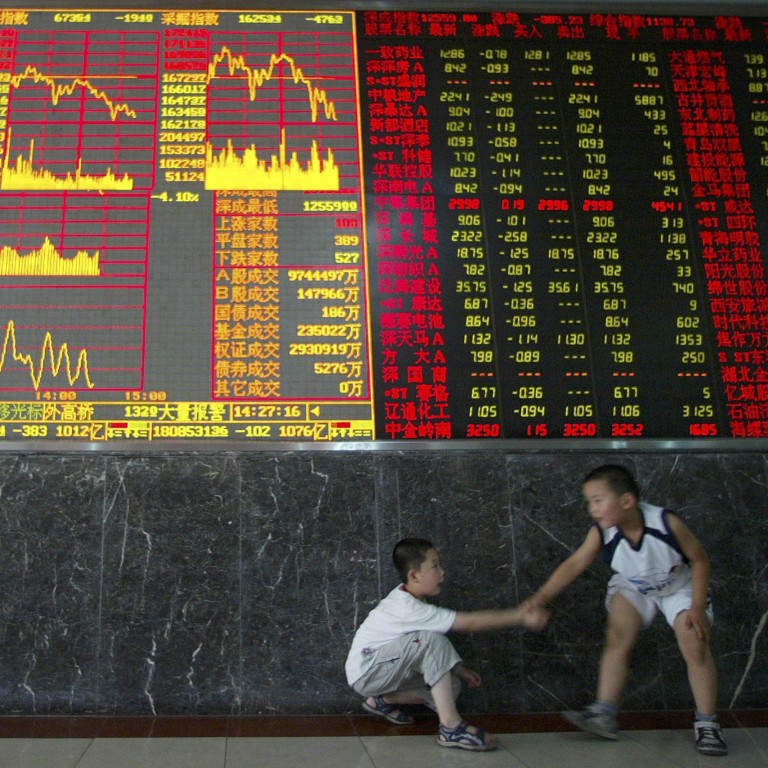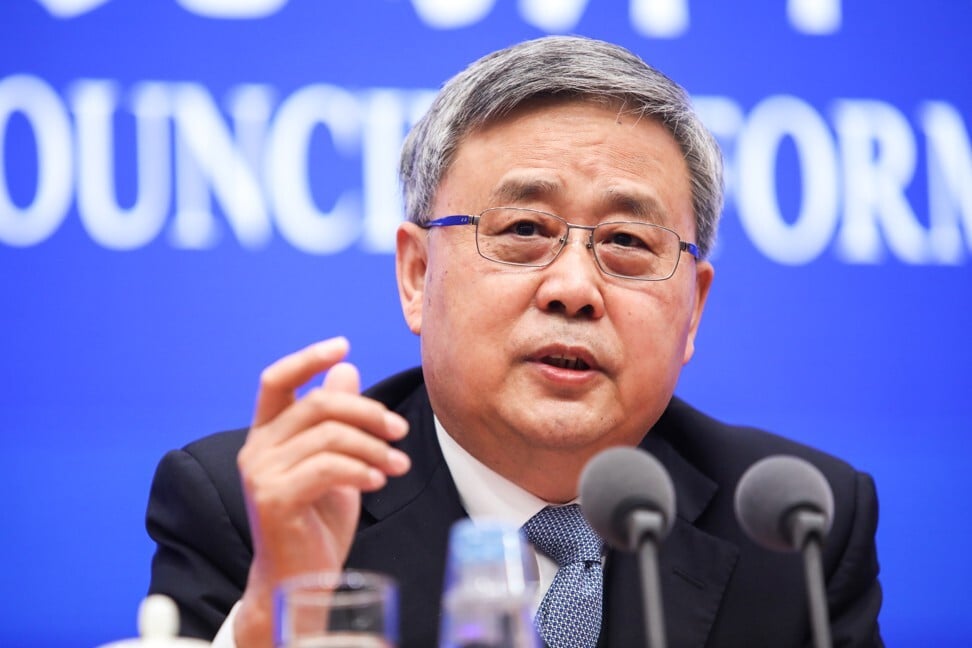
Hong Kong stocks slip as China banking chief warns of asset bubbles, old-economy companies suffer on index revamp plan
- China’s banking and insurance regulatory chief is wary of bubbles linked to overseas financial assets and the property market in the nation
- Hang Seng Index membership to expand from current 55 to 80 by mid-2022 and eventually to 100, a move seen as a negative for old-economy stocks
The Hang Seng Index lost 1.2 per cent to 29,095.86 at the close on Tuesday, erasing an intraday gain of as much as 1.1 per cent. AIA Group and China Mobile retreated more than 2 per cent. The Shanghai Composite Index fell 1.2 per cent as Kweichow Moutai, the world’s most valuable distiller, tumbled more than 4 per cent.
Regional markets also pared broad-based gains after Guo Shuqing, head of the regulator overseeing China’s banking and insurance industries, expressed concerns about the possible bursting of asset bubbles on overseas financial markets. It was dangerous to speculate in China’s property market where prices have been driven up by unprecedented amount of liquidity, he said in a media briefing in Beijing.
Global stocks tumbled last week as traders grappled with the prospects of rising bonds yields and policy tightening. While the Federal Reserve said rising debt yields are reflection of strong growth ahead and pledged continued policy supports, concerns have been mounting that some stocks are running ahead of economic recovery outlook.
“Higher yields appear to be the speed bump in that bullish feedback loop,” said Stephen Innes, a strategist at Axicorp. “But it should be noted that stocks have performed pretty well in rising rate environments; better growth usually means better earnings.”
Traders will also keep a close watch on China’s annual legislative meeting, which will start on Friday and offer a clue on the growth targets and major policy tones this year.

HSBC slid 2.3 per cent to HK$45.05 and China Unicom shed 1.9 per cent to HK$5.05. On the flip side, Sino Biopharm added 4.5 per cent to HK$9.06 and Xiaomi rose 1 per cent to HK$26.05.
Chinese oil producers slumped before an OPEC meeting this week, at which major oil-producing nations are expected to announce to boost production of the fuel. CNOOC lost 3.4 per cent to HK$8.84 and PetroChina retreated 3.2 per cent to HK$2.72.
Hangzhou MDK Opto Electronic surged 155 per cent to 25.95 yuan on the first day of trading on Shanghai’s technology-heavy Star Market.

